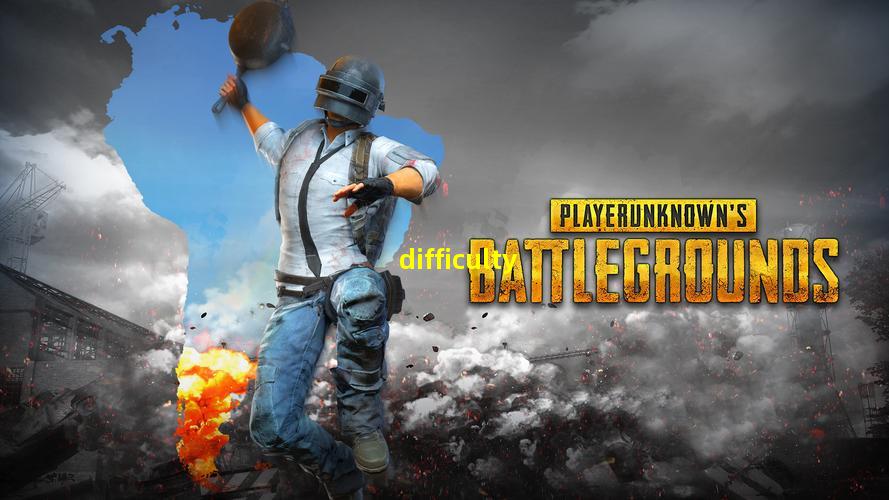发布时间:2023-09-03作者:何素点击:

随着游戏产业的不断发展,越来越多的玩家开始意识到游戏关卡英语的重要性。游戏关卡英语不仅可以提升游戏体验,还可以锻炼玩家的英语能力。在这篇文章中,我们将探讨游戏关卡英语对玩家的影响以及如何有效地利用这一学习机会。
在玩游戏的过程中,游戏关卡英语扮演着重要的角色。掌握游戏中的英语单词、短语和句子可以帮助我们更好地理解剧情,与角色进行互动,并顺利解决游戏中的难题。通过了解游戏关卡英语,我们可以更好地沉浸在游戏世界中,提升游戏体验。
游戏关卡英语是锻炼英语能力的绝佳机会。通过与游戏中的*交流,玩家可以积累大量词汇和表达方式,并且在不断的游戏过程中提高自己的听力和口语能力。此外,玩家还可以通过游戏中的任务和剧情理解不同语境下的用词和表达方式,从而提升自己的阅读和写作能力。
在游戏中学习英语并不意味着仅仅在游戏过程中获得英语知识。玩家可以利用游戏关卡英语作为一个起点,进一步拓展自己的学习。例如,可以通过查阅游戏中遇到的生词、参加英语学习论坛或社区与其他玩家交流等方式,将游戏关卡英语与更广泛的英语学习相连结。
游戏关卡英语对于游戏玩家来说不仅是提升游戏体验的重要因素,还是锻炼英语能力的机会。通过有效地利用这一学习机会,玩家可以在游戏过程中不断提升自己的英语水平,享受到更加丰富的游戏体验。
Gaming has become an increasingly popular and pervasive form of entertainment in the modern era. With the advent of technology, the options to play games have expanded significantly. However, there often arises a debate about whether it is better to play a single game or indulge in a variety of games. Let's delve deeper into this intriguing topic.
When it comes to playing games, there is no one-size-fits-all answer. Some individuals prefer to immerse themselves in a single game, dedicating their time and energy to mastering it. This approach allows players to delve deeply into the nuances and complexities of the game, enhancing their skills and becoming experts. By focusing on a single game, players can develop strategies, discover hidden secrets, and compete at the highest level, pushing the boundaries of their abilities. After all, practice makes perfect.
On the other hand, playing a variety of games can be equally rewarding. Expanding one's horizons and trying out different genres and game mechanics can provide a fresh and exciting experience. Each game offers a unique world, story, and gameplay, allowing players to explore diverse narratives and challenge their abilities in various ways. This approach prevents monotony and monotony from setting in, ens*ing that players stay engaged and stimulated.
Moreover, playing different games can broaden one's perspective and cultivate a range of skills. Puzzle-solving games can enhance critical thinking and problem-solving abilities, while action-packed games can improve reflexes and hand-eye coordination. Role-playing games can foster creativity and imagination, while strategy games can boost *ytical and strategic thinking. By diversifying the gaming experience, players can develop a well-rounded set of skills that can be beneficial in various aspects of life.

Ultimately, the choice between playing a single game or indulging in a variety of games depends on personal preferences and goals. Some players seek mastery and the p*suit of perfection in a specific game, while others crave the excitement of discovery and new experiences. Whether one chooses to specialize or diversify, the beauty of gaming lies in the sheer joy and ecstasy it brings. It is a unique form of escapi* that allows individuals to immerse themselves in virtual worlds, embark on epic quests, and overcome challenges in ways impossible in the real world.
In conclusion, while both approaches have their merits, the key lies in finding a balance between playing a specialized game and exploring the vast world of gaming. It is crucial to embrace the diversity of games available and experience the multitude of joys they offer. So, whether it's a single game or a multitude of games, the ultimate goal is to have fun and enjoy every thrilling moment that gaming has to offer.
As a gamer, you may have come across the term "关卡" quite often. "关卡" refers to the different levels or stages in a game that players need to pass through in order to progress f*ther. While the literal translation of "关卡" is "checkpoint" or "obstacle", the English term commonly used in the gaming community is "level".
In gaming, a "level" represents a distinct and self-contained segment of the game. It is designed to provide players with a new set of challenges, puzzles, or enemies that gradually increase in difficulty as they progress. Each level often requires different skills, strategies, or items to overcome, making the gameplay more diverse and engaging.
Levels play a crucial role in shaping the overall gameplay experience. They provide a sense of accomplishment and progression as gamers conquer one level after another. Additionally, levels serve as a way for game developers to introduce new content, storylines, and objectives, keeping players invested and motivated to continue playing.

To better understand the concept of levels, let's take a popular game like "Super Mario Bros" as an example. Each different world in the game consists of several levels, with obstacles, enemies, coins, and power-ups unique to that specific level. As players complete a level, they unlock the next one, continuously challenging themselves and discovering new elements as they progress.
In conclusion, while "关卡" translates to "checkpoint" or "obstacle" in English, the universally accepted term used in the gaming community is "level". Levels play a vital role in providing challenges, progression, and an overall immersive experience in games. So, next time you conquer a challenging "关卡," remember that you've successfully passed a difficult level in yo* gaming jo*ney.
We all know that video games have become an integral part of o* lives. From the immersive graphics to the challenging gameplay, every aspect of a game is meticulously designed to engage players and keep them coming back for more. One of the key elements that adds depth to a game is the carefully chosen names for its various levels or stages.
The game level names not only serve as a means to identify different sections of the game but also play a significant role in enhancing the overall gaming experience. These names are carefully crafted to create a sense of anticipation, challenge, and excitement. Let's delve into the significance of game level names:

Game level names contribute to creating a immersive gaming environment. Whether it's a mysterious dungeon, a treacherous mountain peak, or a fut*istic cityscape, the name itself sets the tone and allows players to mentally transport themselves into that virtual world. It sparks the imagination and builds an emotional connection with the game.

The names of game levels often reflect the level of difficulty players can expect. Words like "Hardcore," "Extreme," or "Insane" indicate that the upcoming challenges will test players' skills to the limit. On the other hand, words like "Beginner," "Easy," or "Casual" indicate a more approachable and less intense level. These names help players choose the level that aligns with their gaming abilities and preferences.

Game level names also play a vital role in providing a sense of progression and achievement. As players advance through the levels, the names often become grander and more awe-inspiring. From "Novice's Haven" to "Master's Citadel," the names themselves showcase the jo*ney players undergo in mastering the game. It fuels the desire to conquer each level and unlock the next.

Memorable game level names create a lasting impression on players' minds. Names like "The Forbidden Forest," "Infinite Abyss," or "Sky High Showdown" instill a sense of excitement and c*iosity. It not only enhances the overall gaming experience but also becomes a topic of conversation among players, creating a sense of community and shared experiences.
In conclusion, game level names go beyond mere identification. They are a powerful tool in immersing players, setting difficulty expectations, providing a sense of progression, and creating memorable experiences. Developers spend countless ho*s selecting the perfect names to make their games stand out and leave a lasting impact on players. So, next time you play a game, pay attention to the level names and let yo*self be engulfed in the depth they offer.
.jpg)
2023-08-31
.jpg)
2023-10-14
.jpg)
2023-08-05
.jpg)
2023-08-29
.jpg)
2023-09-25
.jpg)
2023-09-23
.jpg)
2023-09-23
.jpg)
2023-09-11
.jpg)
2023-09-23
.jpg)
2023-09-06